595 calories
Serving Size 18 cracker 1 serving (about 129 g)
There is no photo available for this food item however it should be similar in terms of nutritional content and calorie density as the following items. You can use these for references.
(96% similar)
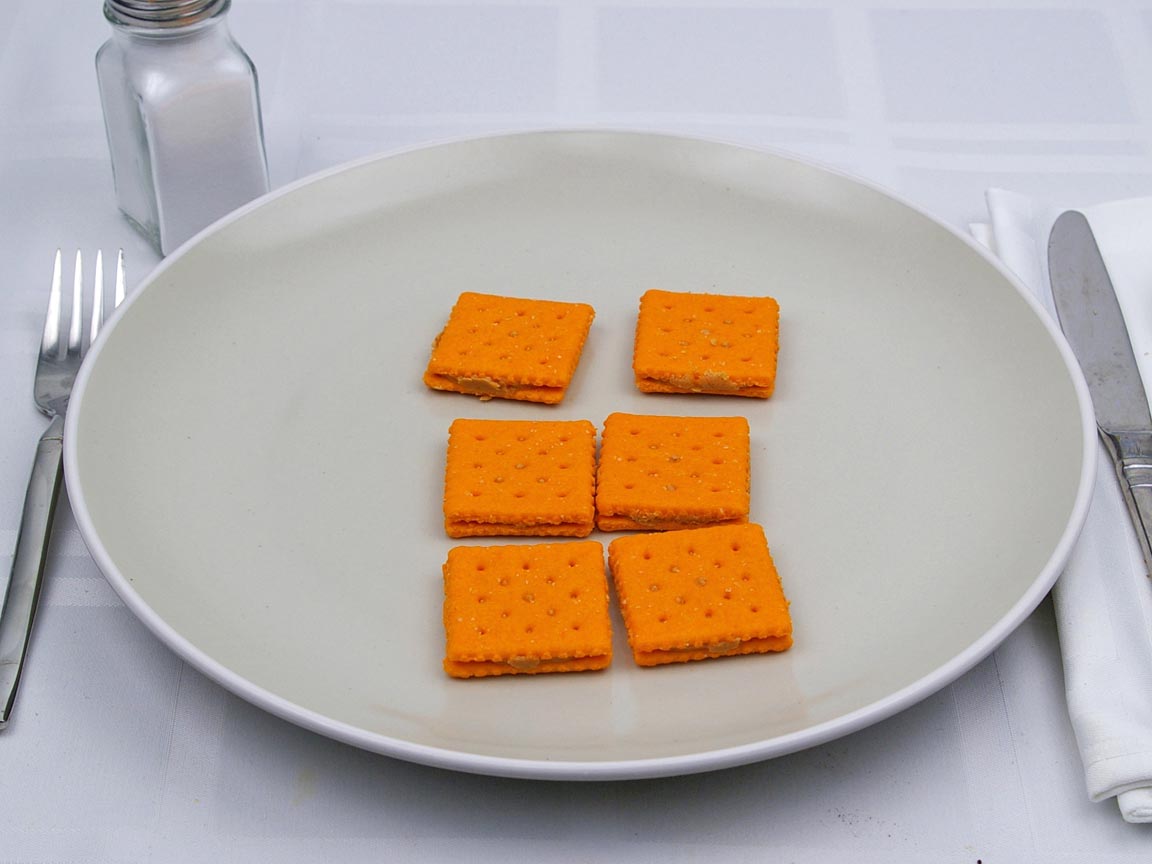
Cheese Crackers with Peanut Butter
(96% similar)
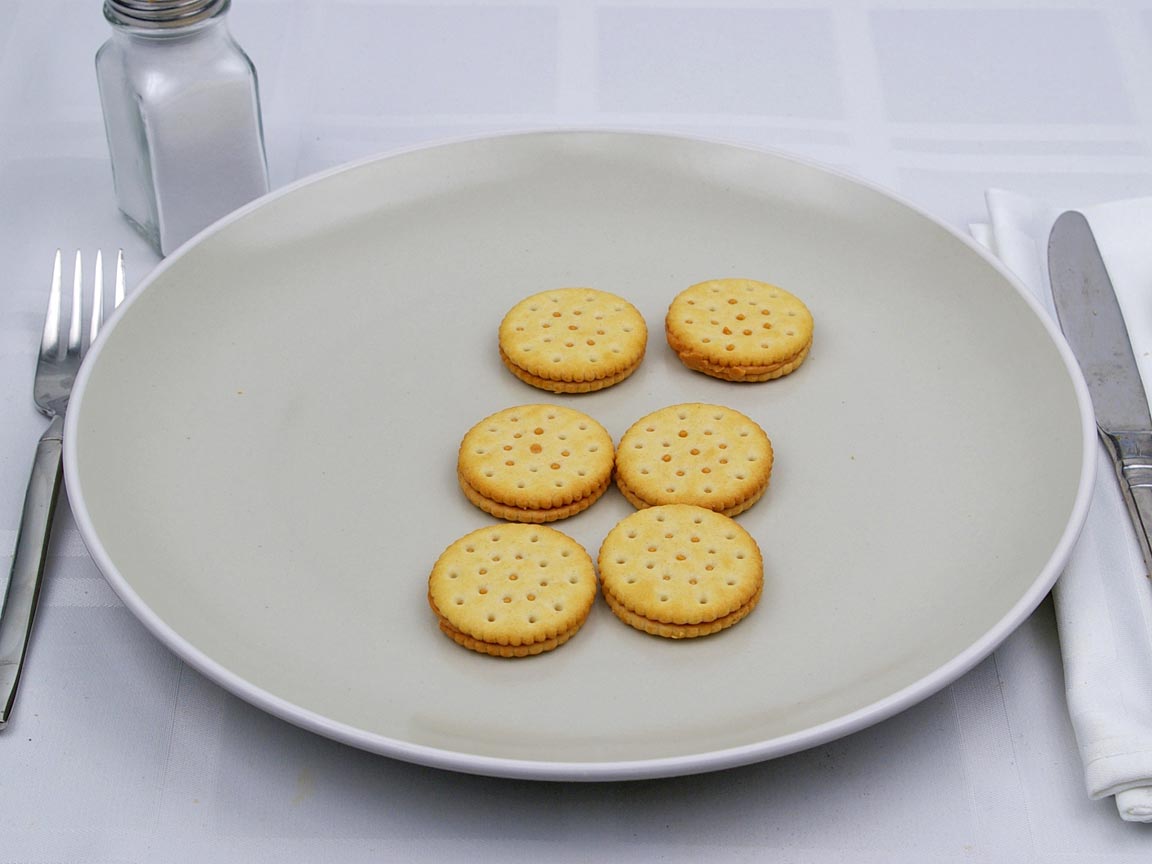
Toasty Crackers with Peanut Butter
(95% similar)
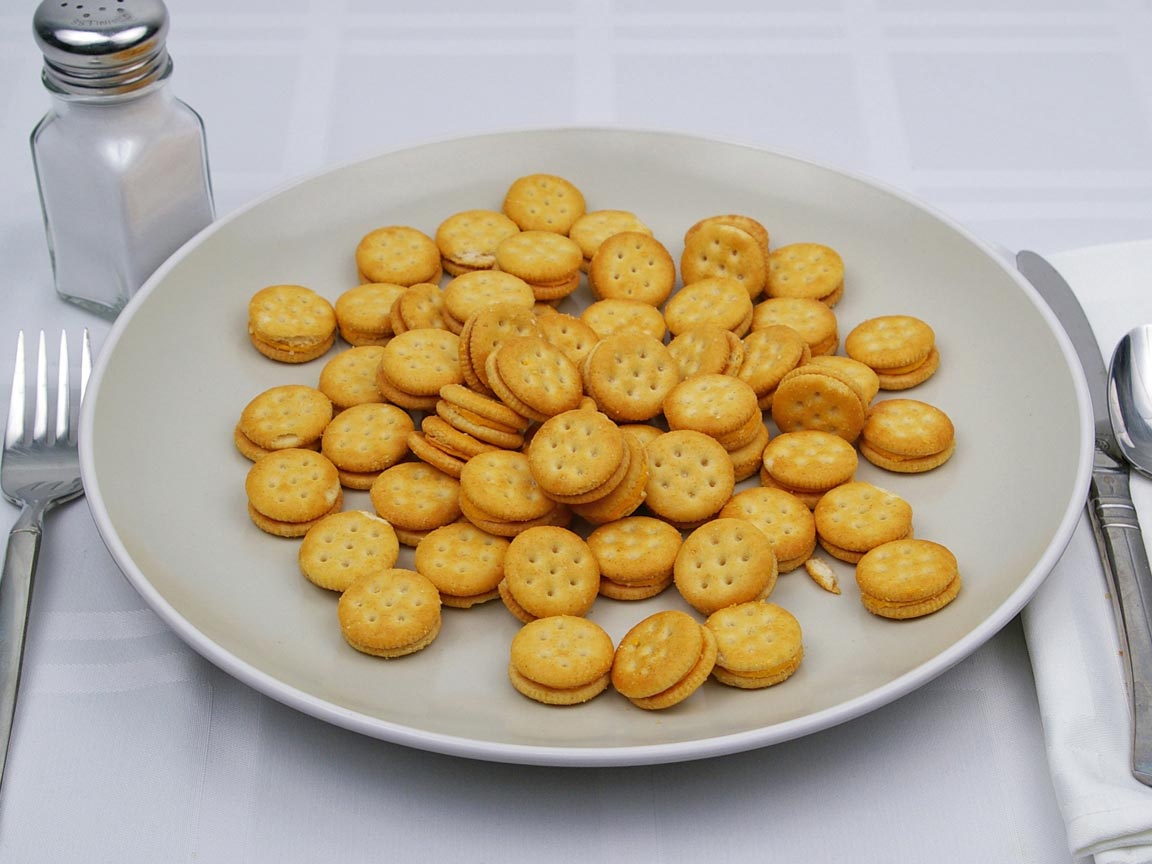
Ritz Bits Peanut Butter Crackers
(96% similar)
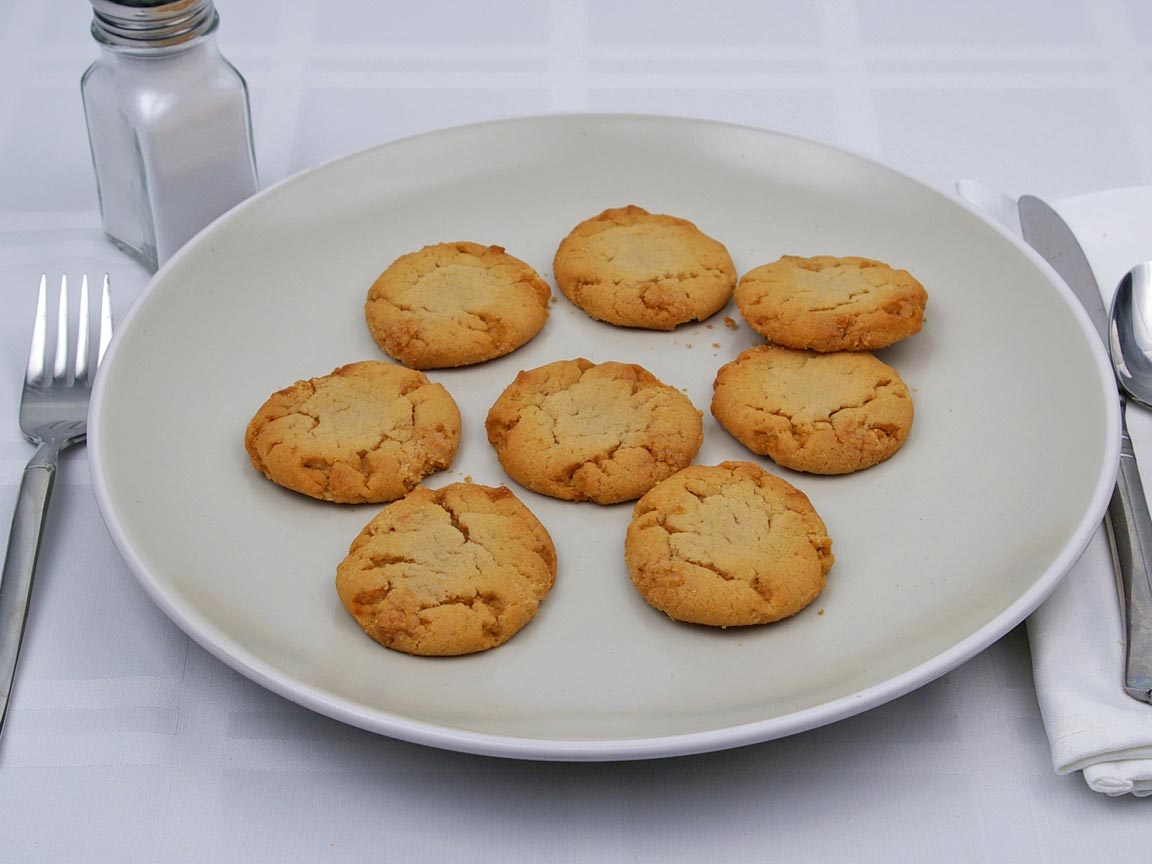
Peanut Butter Cookie
(98% similar)
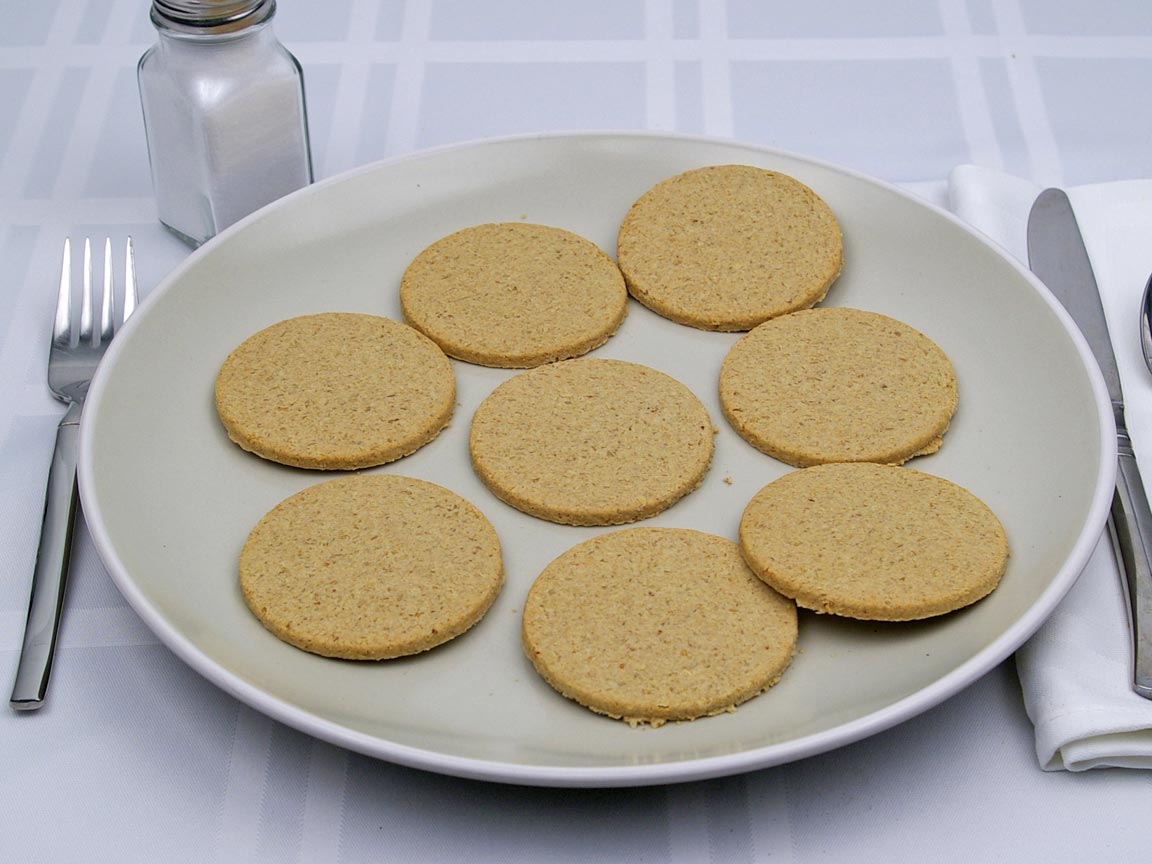
Oat Cake Crackers
(97% similar)
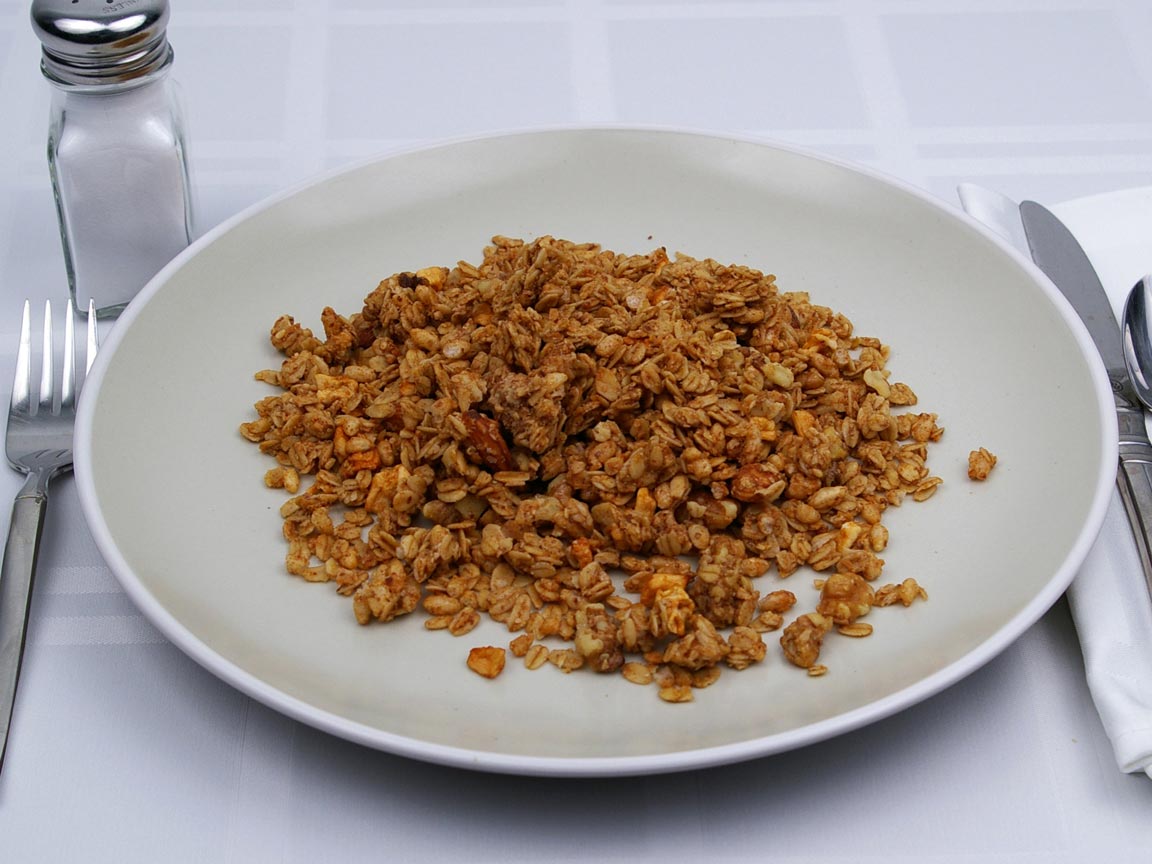
Granola
Serving Size 18 cracker 1 serving (about 129 g)
| Amount Per Serving | ||
|---|---|---|
| Calories 595 | Calories from Fat 245 | |
| % Daily Value* | ||
|
Total Fat
27 |
42 |
|
|
Saturated Fat
5 |
25 |
|
|
Trans Fat
0 |
||
|
Cholesterol
0 |
0 |
|
|
Sodium
819 |
34 |
|
|
Total Carbohydrate
70 |
23 |
|
|
Dietary Fiber
12 |
48 |
|
|
Sugars
12 |
||
|
Protein
18 |
||
* Percent Daily Values are based on a 2,000 calorie diet. Your daily values may be higher or lower depending on your calorie needs.
Available portions
Food analysis
High In Fiber
High Sodium
Junk Food
High Calorie Density
There is 595 calories in 129 grams of Crackers, whole.
With 461 calories per 100 grams, this food would be considered a High calorie density food.
Be carefull, High calorie density food tends to add up calories quickly and you should be carefull with your portion size if you are trying to lose weight.
Crackers, whole is High in carbohydrates, Medium in proteins and High in fats. You can look at the macronutrients graph below for a detailed ratio.
With a High quantity of fibers and a Low quantity of sugars, this usually indicates that it is a good choice of carbohydrates.
This item has High quantity of carbohydrates and fats. This combinasion is usually indicating that you should stay away from this food labeled as "Junk Food".
With 45 grams of "Net carbohydrates" per 100 grams,
it not safe to consume if you are following a Keto or Ketosis diet.
Related Searches
crackers
whole
grain
sandwich-type
with
peanut
butter
filling
Macronutrients split
46.9% Carbohydrates
41.0% Fats
Nutrients and how much we eat of it play an important role on our health and body composition. To learn more on theses, check our blog posts on Proteins, Carbohydrates and Fats.